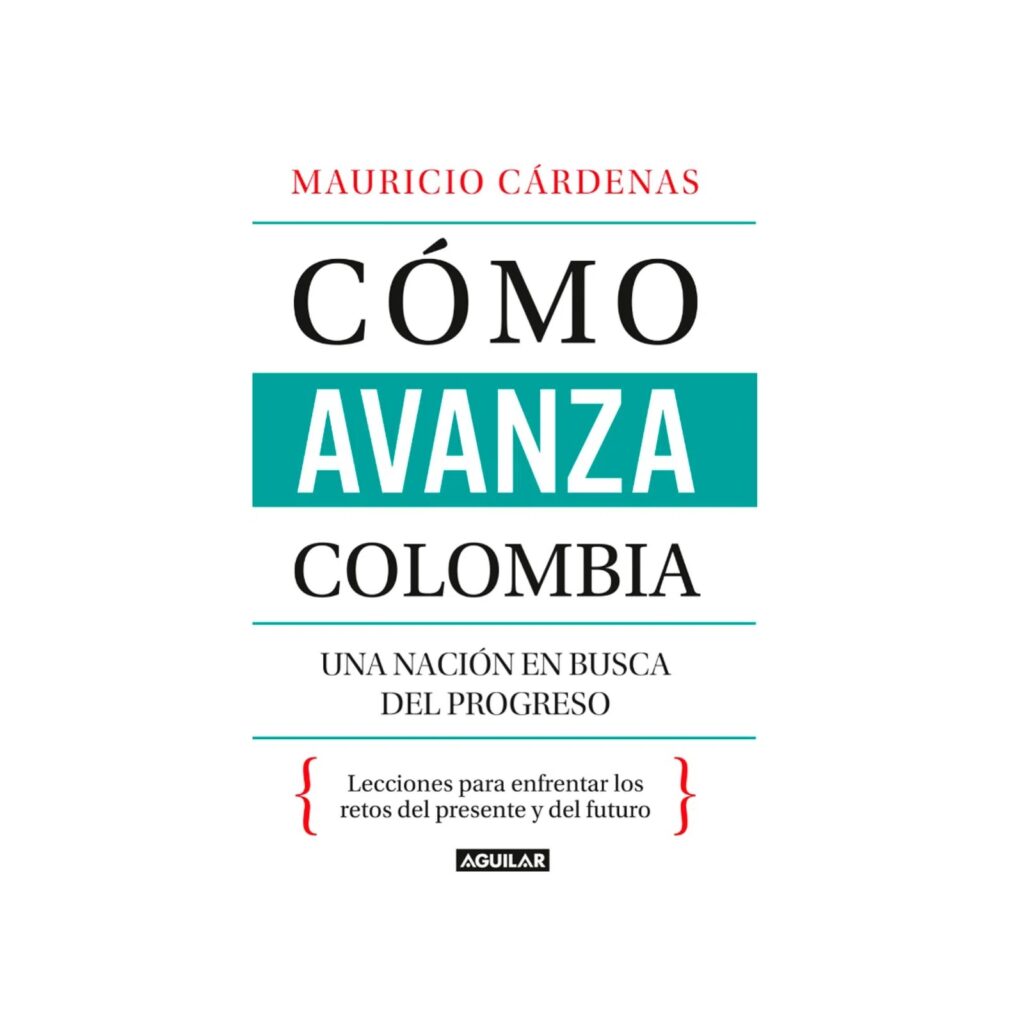Colombia has faced a variety of difficulties in the past few years, from a staggering COVID-19 death toll to spiraling inequality and a spike in homicides. Pessimism about the future has surged, as seen in polls that showcase an overwhelming majority of the population seeking change.
For Mauricio Cárdenas, this pessimism is far from helpful. In fact, it’s dangerous.
The former finance minister sets out to address the country’s darkening mood in his latest book, Cómo avanza Colombia (“How Colombia Advances”), taking stock of the progress the country has made in recent years. In light of the coming 2022 elections, Cárdenas, who has declared as one of nearly forty precandidates for the presidency, makes an appeal for citizens to choose moderate, pragmatic politics over radical populism.
Cárdenas draws from his experience at the highest levels of national politics in crafting his argument. He approaches the success stories that fill each chapter with a mixture of policy analysis and social philosophy, employing each to build a case against Colombia’s national pessimism.
The advances discussed in Cómo avanza Colombia range from the very practical – such as infrastructure gains, tax reform, progress on obesity and nontransmissible illnesses, reductions in infant mortality, the implementation of a carbon tax, a limiting of tax evasion and a formalization of the economy – to the more symbolic, such as Colombia’s obtainment of OECD membership and improved performances in international sports.
Cárdenas details the creation of a toll road program bigger than any other in the region, and a near-doubling since 2014 of bridges crossing the Magdalena River. He walks readers through the hurdles overcome in the years-long OECD accession process and the challenge of balancing Colombia’s economic and energy needs with its climate goals. He dives into the diplomacy needed to declare Panama a tax haven, an important headway made in the struggle against tax evasion.

Cómo avanza Colombia
by Mauricio Cárdenas
Aguilar
Paperback
340 pages
Cárdenas describes each of these as proof that the crises of today are but opportunities for reform. He also stresses throughout the book that it is through consensus-building, and a moderate centrism that puts logic before emotion, that Colombia can reach such results.
To be sure, this focus may seem jarring to many, given the current moment. Colombia’s poverty rate hovers near 40%, its unemployment rate near 12%. Protests, initially against a proposed tax increase and later morphing into demonstrations against police brutality, paralyzed the country between April and June, leaving dozens dead and hundreds injured.
In fact, it is nearly impossible to divorce the book from the context in which it is being released. The pandemic has exacerbated Colombia’s existing problems, from wealth inequality to violence. Over 127,000 people have died since last year, while nearly four million more were pushed into poverty in the same period. Perhaps unsurprisingly, then, polls for next May’s election show radical candidates such as Gustavo Petro with a clear lead over any centrist or conservative competitor.
Cárdenas must thus balance his appeal to optimism with the reality of a country suffering from multiple interconnected crises – and it’s very difficult to ask readers to see the flowers that have grown while in many ways the forest is still ablaze.
Regardless, where Cómo avanza Colombia most excels is where the lessons of the past few decades are used not to quench the thirst for radical change, but rather to inform some of the challenges that Colombia must face today. He concludes his final chapters by looking to the pandemic, narcotrafficking and the climate crisis as areas to which these lessons can and should be applied.
Throughout the book, Cárdenas describes Colombia as a country so fatigued by its longstanding challenges that it’s beginning to doubt its abilities to overcome them. With Cómo avanza Colombia, he employs historical successes as the antidote to this pessimism – and in the process creates a strong case for moderation and pragmatism.
__
Cohen is a former editorial assistant at AQ








